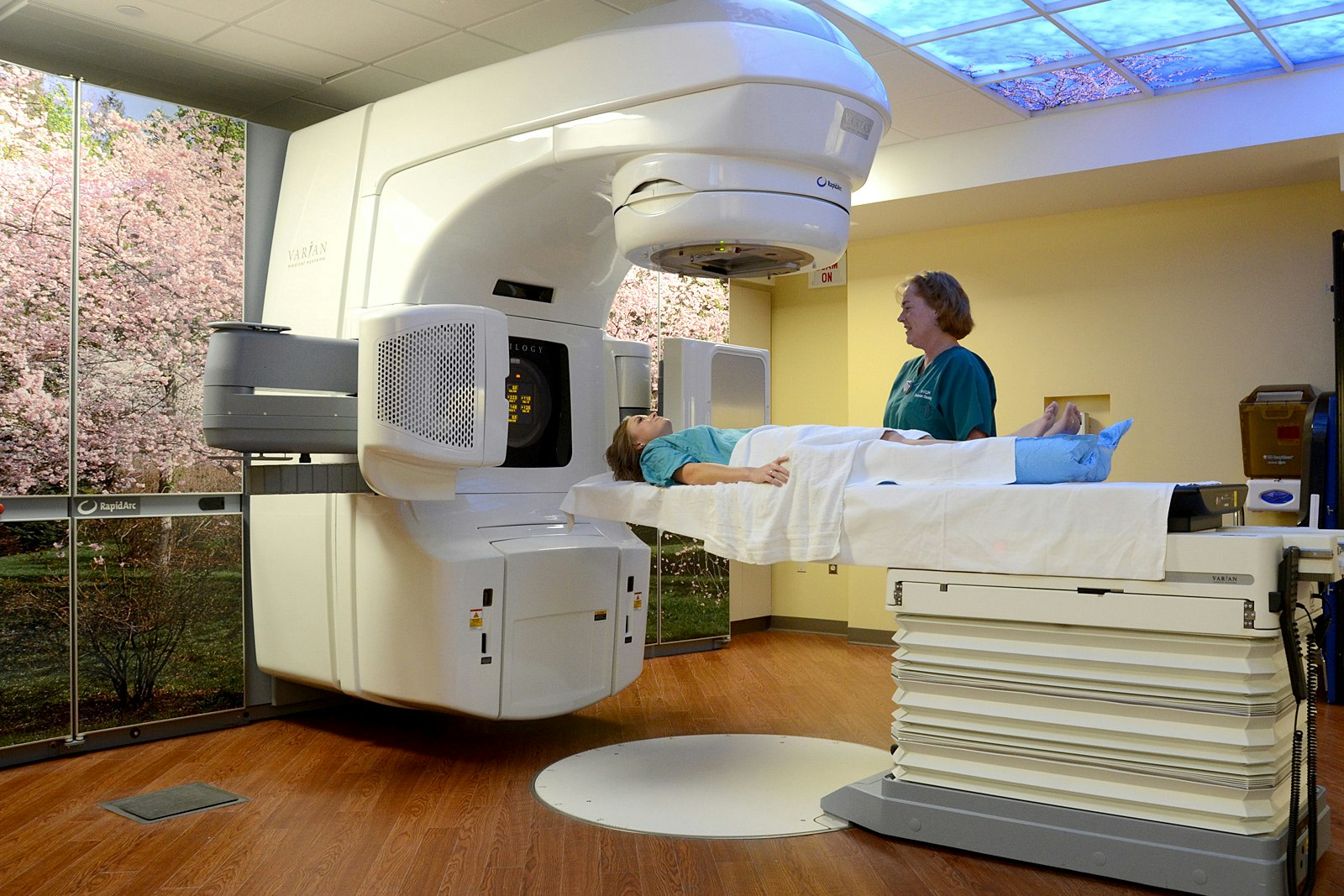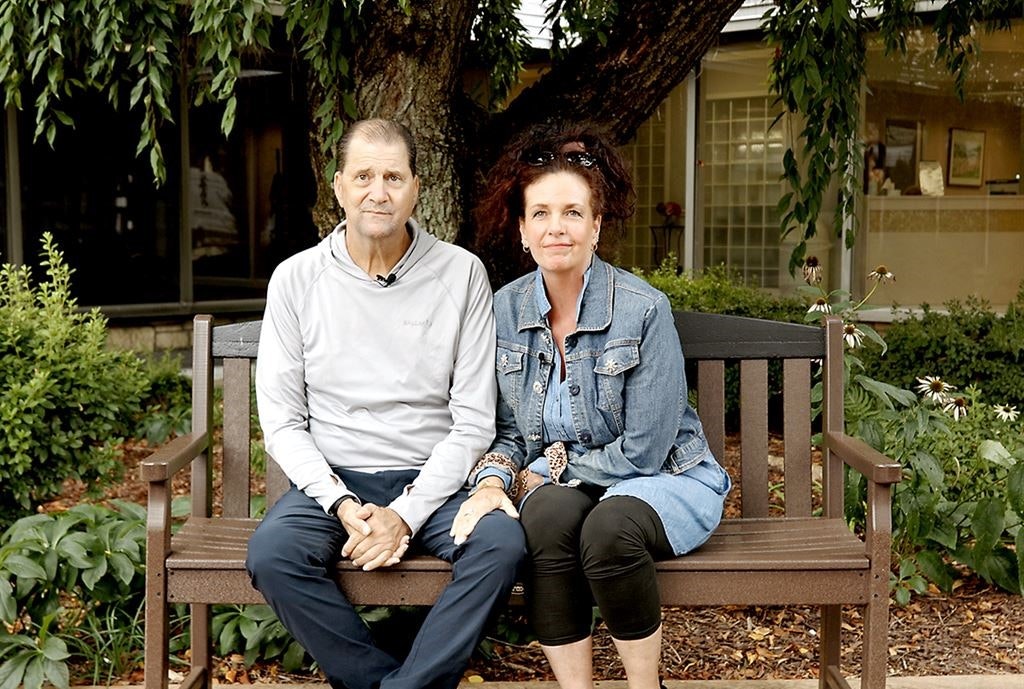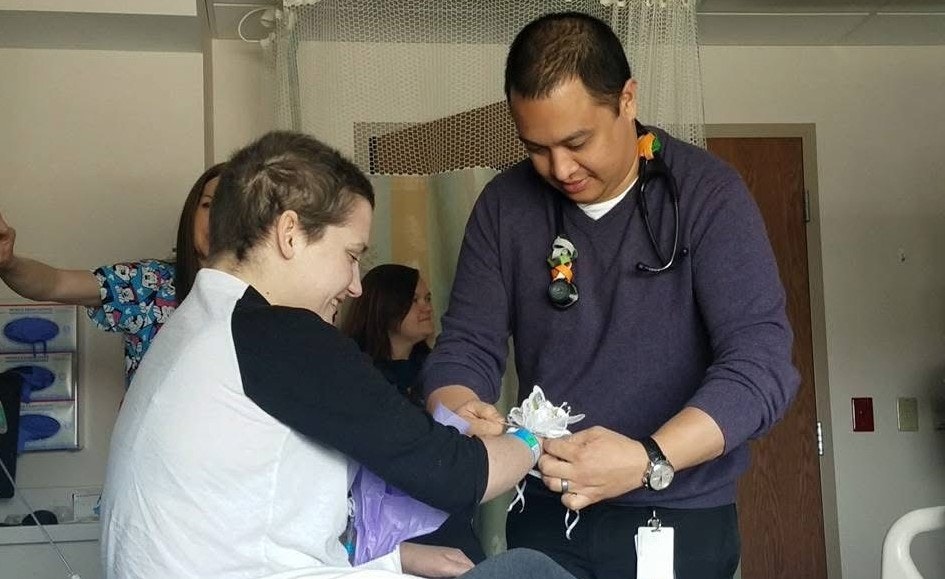Bile duct cancer is a rare cancer that starts in one of the bile ducts. These ducts are the thin tubes that connect the liver and gallbladder to the small intestine. They work to move the fluid the liver makes (called bile) to the gallbladder. This type of cancer may also involve the gallbladder and behaves similarly to bile duct cancer. This cancer can also be called cholangiocarcinoma.
Types of Bile Duct Cancer We Treat
The WVU Cancer Institute specializes in evaluating and treating cancerous and noncancerous tumors. We work to ensure your treatment is specific to your type of tumor and your needs.
The most common bile duct cancers are adenocarcinomas, which start in the mucous gland cells that line the bile duct.
Our team has expertise in diagnosing and treating all types of bile duct tumors. They are classified according to location:
Extrahepatic bile duct cancer
This type of bile duct cancer is found outside the liver.
Intrahepatic bile duct cancer
This cancer is found inside the liver.
Perihilar (hilar) bile duct cancer
This type of cancer is found in the bile ducts that lead out of the liver and join the gallbladder.
Diagnosing Bile Duct Cancer
If your doctor suspects you have bile duct cancer, they may order tests to help make a diagnosis. These tests include:
- Advanced imaging — Doctors can use abdominal ultrasound, computed tomography (CT), magnetic resonance image (MRI), and positron emission tomography (PET) scans to detect signs of disease and see whether cancer has spread to other areas of the body, such as the lymph nodes.
- Biopsy — During a biopsy, a doctor removes a small sample of tissue at the tumor site to analyze in a lab. Biopsy results help oncologists plan the best treatment for you. There are several different biopsy types, including image-guided biopsy, and biopsy using endoscopic retrograde cholangiopancreatography (ERCP). The biopsy type can be a core or fine needle aspiration.
- Liver function test — This is a blood sample that doctors use to examine liver function. We collect a blood sample and measure the amounts of certain substances released into your blood by your liver. Sometimes, a higher-than-normal amount of a substance can be a sign of liver cancer.
- Physical exam — Doctors use a physical exam to look for signs of something going on in your body, such as the presence of a tumor. These can include skin color changes, enlargement of an organ, or lumps in your lymph nodes.
- Serum tumor marker test — Doctors test the blood for certain substances released into the blood by tumors. These are also called tumor markers. An increased level of a tumor marker like CA19-9, CEA or AFP could come from a cancer. Doctors can use tumor markers to help see if cancer treatment is working. Other noncancerous conditions, like cirrhosis and hepatitis, can also increase levels of tumor markers in the blood, and not all cancers make tumor markers.
Treatment for Bile Duct Cancer
From your first visit, our team works with you to address your specific condition and needs. Your care plan may include:
- Medical oncology — Medical oncology includes chemotherapy, immunotherapy, targeted therapy, and hormone therapy. Our doctors use the latest in anti-cancer medicine to destroy cancer cells. We also use medicines to slow cancer growth and shrink tumors before surgery. Sometimes, we use medication alongside other treatments such as radiation or after surgery to destroy any cancer cells that might remain. Anti-cancer medications that could be used include chemotherapy, immunotherapy and tyrosine kinase inhibitors.
- Radiation oncology — We use radiotherapy treatments to target, destroy, and shrink many types of cancers. Our radiation oncologists may use this type of therapy before or after surgery. Radiation oncologists use external beam radiation therapy, 3D conformal radiotherapy, image-guided radiation therapy, stereotactic radiation therapy, intensity-modulated radiation therapy, and brachytherapy.
- Surgery — Surgery is used to diagnose, stage, and treat many tumors. Surgical options for bile duct cancer include a biliary bypass, stent placement, and partial hepatectomy where surgeons remove the part of the liver where cancer is found. Our surgeons have expertise removing these cancers with minimally invasive approaches.
Resources for Bile Duct Cancer
We believe cancer care goes beyond diagnosis and treatment. Many resources are available to answer questions and connect you with others, including:





